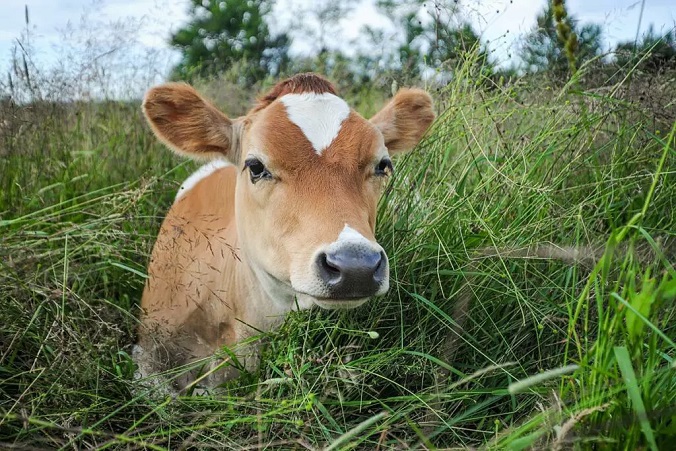While Europeans hope the EU delivers on its promise to ban cages for farmed animals, the Big Agriculture lobby is banking on junk science to thwart progress. Last week, it launched yet another attack on the movement to end caged farming in the EU.
In research commissioned by Copa-Cogeca, representing European farmers and agri-cooperatives, industry-selected scientists have cherry-picked outdated and disputed scientific studies, ignoring established facts, with the goal of scare-mongering politicians into believing that a ban on cages would result in food shortages. In fact, their economic forecast is based on faulty assumptions, which conflict with the best available data in animal welfare science.
For example, the researchers in the study base their cost estimates on claims that banning cages for mother pigs would result in 15%-20% higher mortality rates for piglets. This finding, however, stands in sharp contrast with the independent study last year which was carried out by the European Food Safety Authority.
The study confirmed that there is no discernible increase in mortality rates of piglets when kept with their mothers in large pens, compared to caged systems. There is also no reason for veterinary costs to increase when sows are typically healthier when not confined.
Moreover, the lead institution that conducted the research is affiliated with the Hungarian government, a well-known critic of the EU, whose Prime Minister calls the European Green Deal a “utopian fantasy”. Hungary is also spearheading a deepening East-West divide between EU Member States. Indeed, the report segments the data into ‘East’ and ‘West’, claiming, with faulty reasoning, that newer Central and Eastern European EU Member States would be disadvantaged as a result of this ban on cages.
The European Commission promised the phase-out of cages for farmed animals after the success of the ‘End the Cage Age’ European Citizens’ Initiative. A European Citizens’ Initiative is an official democratic instrument enabling Europeans to have their say in formulating EU law.
‘End the Cage Age’ was signed by 1.4 million Europeans and is one of only nine successful Initiatives since tool for participatory democracy was introduced 12 years ago. Most importantly, ‘End the Cage Age’ has been the only Initiative to have won a firm commitment from the European Commission to amend EU law in response to the campaign’s demands.
Ever since ‘End the Cage Age’ started, the agri industry has been overtly attacking the cage-free movement. In addition to the recent research attempts, they have denigrated campaigners and threatened them with legal action. Their lawyers have furthermore formulated disingenuous, against the prospective new law, so that the horrendous factory farm system won’t have to change.
The Big Ag lobby has also been attempting to obscure the wide consensus among climate scientists. A New York Times article last year revealed how Big Ag, in the US, has mobilized academics to cloud the fact that the world needs to dramatically reduce meat consumption if it hopes to mitigate climate change – and this obfuscatory tactic is also now at play in the EU.
Delayed impact assessment
Furthermore, this industry-backed research in Europe comes at a crucial time for the ‘End the Cage Age’ European Citizens’ Initiative. The EU Commission has promised to present a draft law by the end of summer.
However, the Commission’s impact assessment of its legislative proposal for the revision of animal welfare legislation has not been published yet although the deadline for the consultation has long passed. A secretive EU body, the Commission’s Regulatory Scrutiny Board (RSB), has reportedly rejected the first draft of the impact assessment, calling for more evidence on the economic impacts. This delay is unfortunately well-timed for the agri industry to push their unproven science with the hopes of alarming politicians.
Yet, there are other jurisdictions in the world that have banned cages, and no economic fallout has ensued. Last month, the US Supreme Court upheld the California law banning cages for farmed animals, as well as the sale of products originating from caged animals. To date, 14 of 50 US states have banned at least some form of extreme confinement of farm animals, and a number of other states are debating similar laws. Israel has also committed to ban cages in the egg industry by 2029.
Additionally, the Institute for European Environmental Policy has examined the issue of how going cage-free would impact the economy. They have concluded that, with the right funding a cage phase-out holds economic benefits for consumers and farmers; ethical benefits for animals, the environment, and all others involved.
While the EU debates whether to join other jurisdictions in banning the cruel practice of caging, animal suffering continues unabated across Europe. 300 million EU farmed animals suffer extreme confinement every year.
About half of all egg-laying hens, and nearly all rabbits, are forced into miniscule cages, the floor size of which is roughly equivalent to an A4 sheet of paper. The great majority of mother pigs spend approximately half of their short lives inside crates or stalls so small that they cannot even stand and turn around.
If the agri lobby succeeds in their aims, the unfathomable suffering caused by cages will continue. And the EU, for its part, will be funding agri industry to keep factory farming on life support. Instead, EU subsidies should be redirected to support systems that safeguard the environment and increase animal welfare. Short-term economic considerations should not override the popular desire for an ethical, sustainable future.
European citizens cherish democracy as a matter of priority, as evident in the latest Eurobarometer poll, conducted as part of the run-up to the 2024 elections. Likewise, anti-EU sentiment also remains a considerable force in European politics. The European Commission is sure to enflame such sentiments – shooting itself in the foot – should its promise prompted by such a resoundingly popular and successful European Citizens’ Initiative be broken.
It is high time for the EU to honor European democracy by putting a permanent end to the dreadful cage age.

